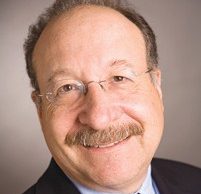As we write this, the outcome of the federal debt ceiling debate appears headed for resolution and if that is the case, the Tri-Counties will have been lucky to escape with minor economic damage.
It’s hard to describe, however, what more than two weeks of shutdown have meant to scholars conducting research at the Ronald Reagan Presidential Library, which has been closed. Ditto for the researchers at our national parks and federal marine research stations up and down the region.
It’s also hard to say what has happened to small businesses looking for federally guaranteed loans to expand or buy a new building.
Tri-county businesses are a hardy lot. We’ve survived California handing out IOUs instead of checks, the recall of a governor, the ongoing crisis in worker’s comp, a broken unemployment system and countless debt-driven debacles emanating from Sacramento.
What has gotten lost somehow in a political debate that has taken all of the air out of the room is that the private sector still represents the vast bulk of the U.S. economy.
Today, the federal government represents about 20 percent of all economic activity, a level that has been relatively consistent since the end of World War II. The annual budget deficit has fallen to levels that are consistent with a sustainable economy going forward.
What is not under control, in addition to political rhetoric, is the future commitments we’ve made under unfunded entitlement programs, particularly to baby boomers who are now reaching retirement age.
The easy thing to do these days is to put your head down and keep working and assume the political problems will take care of themselves. But business owners and managers are key stakeholders — we hold the keys to far more economic activity than politicians.
So far, a handful of executives, including Warren Buffett of Berkshire Hathaway, Howard Schultz of Starbucks, David Cote of Honeywell and Chairman Emeritus Richard Kovacevich of Wells Fargo have stepped forward to try to add a touch of sanity to the crazy talk in Washington, D.C. But there is plenty of room for others to speak up.
Whether the topic is Obamacare, the debt debacle, immigration reform, tax policy or regulation, the voice of business should not be absent from the debate going forward.
[Correction: An earlier version of this editorial misspelled the name of Honeywell CEO David Cote.]





 Print
Print Email
Email
















